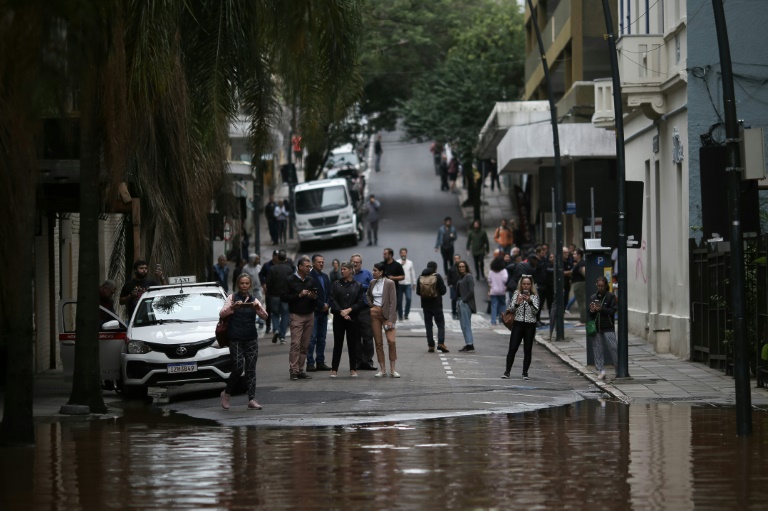The death toll from floods and mudslides triggered by torrential storms in southern Brazil has climbed to 56 people, with another 67 missing, the country’s civil defense agency said Saturday.
Rising water levels in the state of Rio Grande do Sul were straining dams and threatening the metropolis of Porto Alegre, where authorities were scrambling to evacuate some neighborhoods that had been submerged.
Rescuers faced a colossal task, with entire towns made inaccessible by floodwaters.
Residential areas found themselves underwater as far as the eye can see, with roads destroyed and bridges swept away by the powerful currents.
At least 265 municipalities have suffered storm damage in Rio Grande do Sul since Monday, according to local officials, injuring dozens people and displacing more than 24,000 — a third of whom have been brought to shelters.
President Luiz Inacio Lula da Silva visited the region Thursday, vowing “there will be no lack of human or material resources” in responding to the disaster, which he blamed on climate change.
Climatologist Francisco Eliseu Aquino told AFP on Friday that the devastating storms were the result of a “disastrous cocktail” of global warming and the El Nino weather phenomenon.
South America’s largest country has recently experienced a string of extreme weather events, including a cyclone in September that claimed at least 31 lives.
Aquino said the region’s particular geography meant it was often confronted by the effects of tropical and polar air masses colliding — but these events have “intensified due to climate change.”
ll/app/db/md/bbk
